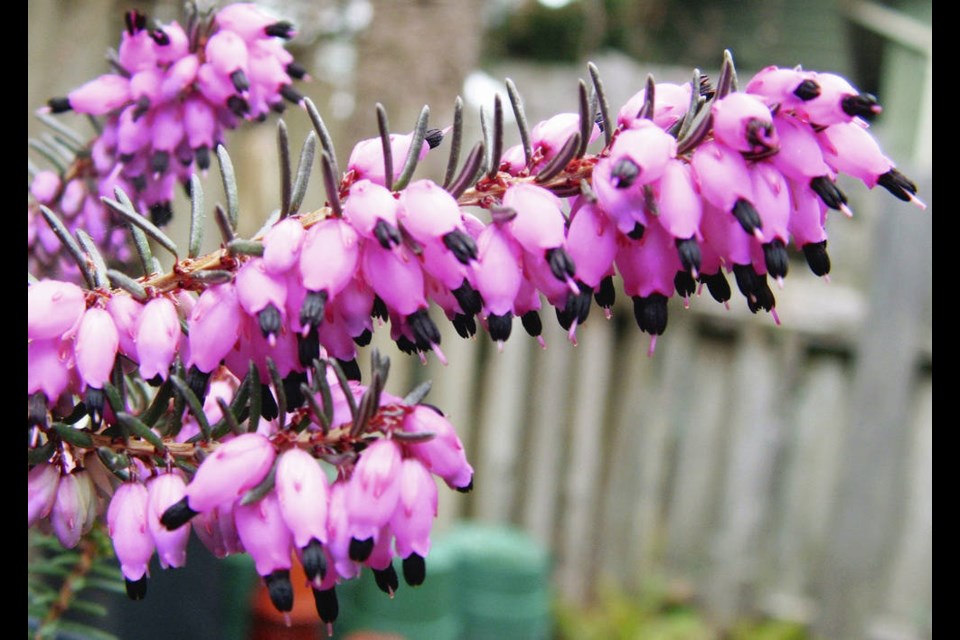IŌĆÖm sensing gleeful anticipation all around ŌĆö in people I meet, in the mail. A recent email from a gardener expressed it well: ŌĆ£ItŌĆÖs March. Spring is coming. Yippee!ŌĆØ
The thought of spring, warming weather, and the approaching possibility of more comfortable socializing outdoors, even if still appropriately distanced, is sparking a sense of freedom made more glorious coming out of a long period of necessary social constraint.
Setting our clocks ahead tonight, and the resulting lengthening of evening daylight time, will further enhance the pleasures of outdoor pursuits.
For gardeners, this is true ŌĆ£springing aheadŌĆØ time as we launch into familiar rituals of the season ŌĆö acquiring seeds, tubers and plants; clearing plots and preparing them for spring planting; pruning; raking lawns; gathering needed supplies.
Two weeks ago, I emptied the cargo area of my car and set out to find supplies I needed most immediately ŌĆö lime for the lawns and for vegetable and flower plot preparation, all-purpose potting mixes, a length of sturdy wire fencing for the sweet peas, cucumbers and climbing zucchini, and the green metal posts I use to support the wire.
More garden shopping. At one outlet I was diverted by a full selection of West Coast Seeds, where I found a packet of Mammoth sweet pea seeds for a trial outdoor sowing at mid-October.
On the way home I dropped into a garden centre for a look around. It was still February, and the greenhouse shelving was far from full, but there was a hefty display of colourful heucheras (coral bells), in my experience among the most showy and stalwart of minimal-maintenance perennials for garden beds and containers.
In the store part of the garden centre was a rack of seeds from ReneeŌĆÖs Garden in California. I noticed, and bought, a packet of Sweet Merlin ŌĆ£roasting beets.ŌĆØ IŌĆÖd been given a few Merlin seeds to try last spring, and was impressed at how well they grew.
The is worth a look. I see she still lists the two Renee Shepherd Recipes from a Kitchen Garden cook books that IŌĆÖve used for years.
Since my resistance to herb plants, particularly thyme in its many forms, is minimal, I came away with a beautiful little Tabor thyme plant. The tiny, glossy leaves have a deep, deliciously pungent aroma. Tabor is regarded as one of the best thymes for cooking because of its strong scent. ItŌĆÖs a bushy, spreading plant 15 cm high and 40 cm across.
Attracted by the unusual flower colour, I came away also with an ice plant (Delosperma) called Fire Spinner. These plants form low, spreading carpets of succulent leaves speckled with light flecks that reflect the name ŌĆ£ice plant.ŌĆØ Fire Spinner flower petal perimeters are bright orange, the inner petals a deep pink, with a white eye at the bloom centre. Heritage Perennials, a major supplier to local garden centres, lists Fire Spinner.
Both the thyme and ice plant suit locations in full sun with a dryish soil. Both are drought tolerant once established. IŌĆÖll be growing them in clay pots alongside a sunny path.
As ever, I could not resist a small display of heathers, all in the small pots (10 cm wide) that I prefer. These small plants have never failed to settle in easily for long-term residence in my garden.
An Erica darleyensis called Lucie drew my immediate attention for its large magenta flowers. ItŌĆÖs an award-winning ŌĆ£sportŌĆØ (mutation) of the commonly grown KramerŌĆÖs Red.
The Erica carnea ŌĆśSpringwood PinkŌĆÖ plants in the display brought on a fit of nostalgia, for the Springwood Pink plant I took from my fatherŌĆÖs garden after he died and before my mother moved from the house. Now several decades old, itŌĆÖs grown to over two metres wide and is in full bloom. I bought two new plants.
Native plants. The Horticulture Centre of the 91įŁ┤┤ is offering an online course via Zoom on Propagating Native Plants on Tuesday, March 23, 6:30 to 8 p.m. Learn how to propagate these useful, low-maintenance plants by seed, division, and cuttings. Cost is $25 per screen. For details and online registration go to . The siteŌĆÖs home page also lists courses. Or phone 250-479-6162 to register.
Master gardeners information service. Because Victoria Master Gardeners are unable to hold face-to-face clinics at this time, they are answering gardening questions by email at [email protected]. For information about the organization and more about the helpline, visit .



